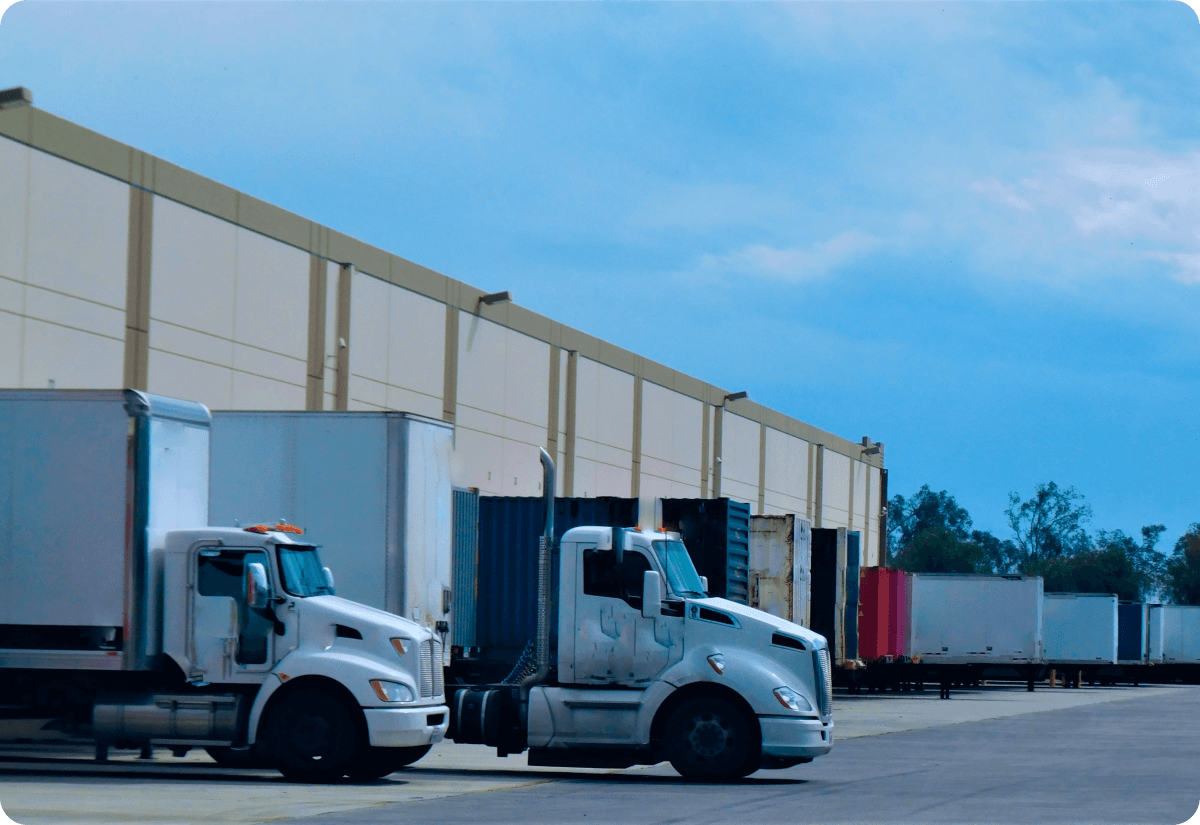Startups thrive on agility and customer satisfaction. But as they grow, managing orders, inventory, and deliveries can become overwhelming. That’s where fulfillment services for startups come in.
With same-day and instant delivery services projected to account for 20% to 25% of the market by 2025, startups that integrate these capabilities can enhance customer satisfaction and retention. Outsourcing distribution allows businesses to scale without logistical headaches.
Let’s explore how ecommerce fulfillment, warehouse operations, and cost-effective solutions fuel startup growth. Ecommerce fulfillment plays a crucial role in ensuring businesses efficiently manage logistics and meet growing customer demand.
Why Fulfillment Services for Startups Are Key to Success
Startups and small businesses often struggle with logistics due to limited resources, lack of expertise, and the challenges of keeping up with increasing order volumes.
Managing order processing, inventory storage, and shipping in-house can quickly become overwhelming. Fulfillment services for startups help avoid delays, errors, and high operational costs. Without a dedicated logistics strategy, startups risk inefficiencies that harm customer satisfaction and profitability. Here’s why outsourcing distribution is a game-changer:
- Faster Delivery Times – Professional distribution centers streamline order processing, ensuring customers receive their products quickly with a high accuracy rate.
- Cost Savings – Renting a warehouse and hiring staff can be expensive. Outsourcing reduces overhead costs, including storage fees and shipping costs.
- Scalability – Fulfillment services for startups grow with your business, managing peak sales periods efficiently.
- Better Customer Experience – Reliable shipping and easy returns improve customer satisfaction and loyalty, helping online marketplaces and ecommerce stores thrive.
- Operational Efficiency – Partnering with an order distribution provider ensures seamless integration with inventory management systems, reducing errors and streamlining logistics.
A strong distribution strategy gives startups a competitive edge, allowing them to focus on innovation and customer acquisition instead of logistics challenges. It ensures businesses efficiently manage inventory, process orders, and scale operations without logistical complexities.
How Ecommerce Fulfillment Helps Startups Meet Demand
Ecommerce fulfillment is essential for startups aiming to provide seamless shopping experiences for their customers. By integrating efficient fulfillment services for startups, businesses can enhance order accuracy, reduce delays, and improve overall customer satisfaction.
Below is a detailed breakdown of the process:
Step 1: Receiving Inventory
Products arrive at the distribution center from suppliers or manufacturers. The center inspects the shipment for accuracy and quality before logging it into their system, ensuring inventory is correctly accounted for and ready for storage.
Step 2: Storage & Inventory Management
Once received, products are strategically stored in a warehouse. Advanced inventory management systems track stock levels in real time, helping businesses prevent stockouts and overstocking while optimizing storage fees.
Step 3: Order Processing
When a customer places an order, the distribution center system selects the correct items. Orders are picked, securely packed, and labeled for shipment. Automated systems minimize errors and improve accuracy.
Step 4: Shipping & Delivery
Once packed, orders are dispatched via carriers like FedEx, UPS, or USPS. Optimized shipping routes ensure timely delivery, balancing speed and cost. Customers receive tracking updates for real-time monitoring.
Step 5: Returns Handling
If a customer requests a return, the distribution center manages it efficiently. Returned products are inspected before being restocked, refurbished, or disposed of. A smooth return process enhances customer satisfaction and trust.
By leveraging ecommerce fulfillment, startups can focus on product innovation and marketing rather than logistics. A well-structured system ensures businesses scale efficiently while maintaining high service standards.
Speed matters—but visibility is what keeps customers and teams confident.
Real-Time Tracking and Data Visibility
Real-time tracking gives startups visibility into inventory levels, order status, and delivery progress. Data dashboards help teams spot delays early, respond quickly, and improve decision-making. This visibility improves customer trust and allows startups to refine operations as order volumes increase.
The Role of Warehouse Operations in Startup Logistics
Warehouse operations are crucial to ensuring a smooth supply chain. By leveraging fulfillment services for startups, businesses can improve how efficiently products move from storage to shipment, positively impacting costs, order accuracy, and customer satisfaction.
Proper inventory management keeps stock organized, prevents errors, and reduces processing times. Additionally, well-managed warehouse operations enable businesses to scale effectively, especially during peak demand. Below is a comparison of in-house vs. outsourced warehouse operations:
| Feature | In-House Warehouse | Outsourced Warehouse |
| Upfront Costs | High (rent, equipment, staff) | Low (no need for direct investment) |
| Scalability | Limited (space and staff constraints) | High (can handle peak demand) |
| Technology Access | Requires investment | Advanced systems included |
| Time Management | Time-consuming | Allows startups to focus on growth |
| Flexibility | Requires long-term contracts | Short-term agreements available |
Outsourcing warehouse operations helps businesses operate efficiently without the burden of managing physical storage and tracking inventory.
A well-managed warehouse streamlines logistics, prevents stock discrepancies, and enhances workflow efficiency. Prioritizing optimized warehouse operations leads to better order accuracy, fewer errors, and reduced operational costs.
With a clear view of how orders move through a warehouse, the next step is choosing the right warehousing locations to support efficient global fulfillment.
Warehousing Locations for Global Fulfillment
Strategically located warehouses reduce shipping times, lower transportation costs, and support international growth. Global fulfillment networks allow startups to position inventory closer to customers, improving delivery speed and customer satisfaction while maintaining cost control.
Types of Fulfillment Services Available for Startups
Fulfillment services come in several flavors. Choosing the right model helps you control costs, maintain quality, and scale at your own pace. Here’s a quick look at the main options:
In-House vs. Third-Party Logistics (3PL)
Handle everything yourself—from shelving to shipping. With 3PL, you send inventory to a partner who picks, packs, and ships. Startups often move to 3PL as orders grow.
Dropshipping Services
No inventory needed: orders go straight to your supplier, who ships to customers. Ideal for low-risk product tests or niche offerings.
Subscription Box Fulfillment
Experts kit, ship, and manage recurring orders and returns. Keeps monthly or quarterly boxes on time without extra effort.
White-Glove & Pick-Pack Services
White-glove adds inspection, custom packaging, and inserts. Pick-pack uses local packers for fast, flexible order fulfillment.
Startups in different fields have unique needs—industries like D2C retail, subscription boxes, crowdfunded products, and B2B sample kits often gain the most from fulfillment services.
Next, we’ll explore how startups can leverage fulfillment services—like kitting and assembly—to streamline operations and deliver products faster.
Industries That Can Benefit from Fulfillment Services for Startups
Outsourced fulfillment drives efficiency in many verticals. By using fulfillment services for startups, businesses can maximize their impact. Here are four areas where startups often see the greatest return:
- Direct-to-Consumer Retail: Fast delivery and polished packaging boost brand image.
- Subscription Products: Reliable monthly shipping keeps churn low and customer value high.
- Crowdfunded Launches: Handle sudden spikes in pre orders without temp staff.
- B2B Sample Kits: Quick delivery of samples smooths the trial process and spurs repeat orders.
Signing up is just the beginning. A clear onboarding process—covering setup, testing, and go-live—ensures your first orders ship smoothly and avoids costly delays.
Now, let’s walk through the onboarding and integration process to ensure your systems connect smoothly.
Onboarding and Integration Process for Fulfillment Services
A clear onboarding roadmap for fulfillment services for startups ensures your first orders ship without a hitch. Here’s what you should do:
Account Setup & System Access
You receive login credentials and an overview of the portal. Grant permissions so the provider can view inventory and order data.
Inventory Upload & Testing
Send a small batch of SKUs for barcode and label tests. The provider checks for errors before full rollout.
Live Order Rehearsals
Place a few real or mock orders to confirm picking, packing, and shipping workflows.
Go-Live Checklist
Finalize SOPs, confirm shipping rates, and schedule regular restocks. Once all checks pass, let the provider handle incoming orders.
Once you’re onboard, you want orders to flow automatically from cart to warehouse.
Here’s how integrations make it seamless:
- Native Plugins vs. API Connections: Many providers offer one-click plugins. Plugins install quickly but may lack custom features. APIs require developer setup, but let you tailor every data point.
- Real-Time Inventory Sync: Look for two-way sync so your store updates stock as orders ship. Real-time sync stops out-of-stocks from appearing available and cuts cancellations.
- Automated Order Routing: Advanced setups route orders by ZIP code, product type, or service level—sending each order from the closest warehouse to cut transit time and cost.
Behind every shipment is a support team ready to step in when issues arise—knowing whether you’ll have a dedicated contact, guaranteed response times, or live status alerts helps you set the right expectations.
Once onboarding is complete, seamless system connections keep orders flowing automatically.
E-commerce Platform Integrations
E-commerce platform integrations connect your online store directly to the fulfillment provider’s system. Orders, inventory updates, and shipping confirmations sync automatically, reducing manual work and errors. Popular integrations support faster scaling and ensure startups can manage fulfillment efficiently as sales grow.
Finding Affordable Fulfillment Services Without Sacrificing Quality
Cost is one of the biggest challenges for startups when it comes to logistics. Limited budgets often make it difficult to maintain in-house operations, leading to inefficiencies that can slow down growth. However, finding affordable fulfillment services doesn’t mean sacrificing quality or reliability.
By choosing the right distribution partner, startups can optimize their logistics while keeping expenses under control. Here’s how startups can strike the right balance:
- Compare Pricing Models – Look for providers with transparent pricing structures and no hidden fees to ensure you get affordable fulfillment services that match your budget.
- Check Service Offerings – Some providers offer bundled services like inventory management and customer returns, essential for ecommerce businesses seeking affordable fulfillment services.
- Leverage Technology – Automated systems improve order accuracy and reduce errors, ensuring that affordable fulfillment services remain efficient and reliable while minimizing costly mistakes.
- Negotiate Contracts – Flexible terms allow startups to scale up or down based on demand, avoiding restrictive long-term contracts.
- Read Customer Reviews – Learn from other businesses’ experiences before committing to an order distribution service.
By selecting the right distribution partner, startups can lower costs while maintaining efficient logistics. An optimized ecommerce fulfillment strategy helps businesses streamline operations, meet customer expectations, and scale effectively. With affordable fulfillment services, startups can ensure cost-effective and reliable logistics solutions that support long-term growth.
Optimize Your Fulfillment Strategy Today
We understand that managing logistics can be overwhelming for startups and small businesses. Fulfillment services for startups are essential for scaling efficiently. Whether it’s through ecommerce fulfillment, warehouse operations, or affordable fulfillment services, outsourcing logistics allows businesses to focus on growth instead of operational setbacks.
At Supply Chain Solutions, we help businesses of all sizes streamline order fulfillment. Our tailored solutions ensure efficiency, scalability, and customer satisfaction. Contact us today to optimize your fulfillment strategy and scale with confidence.

